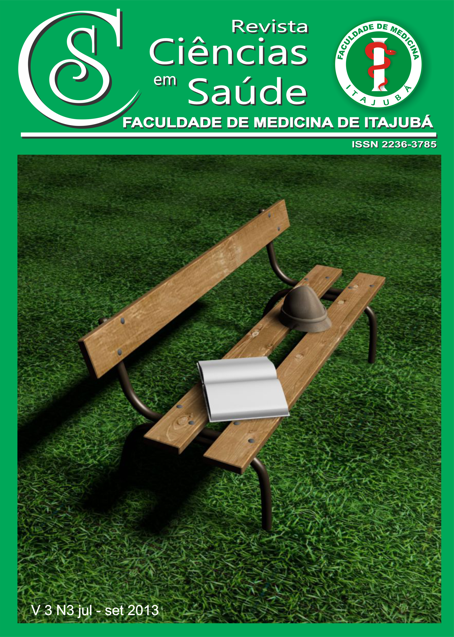As Representações Sociais sobre Cuidados Paliativos sob a Ótica de Enfermeiros/ Social Representations on Palliative Care on the Perspective of Nurses
Main Article Content
Abstract
Objetivos: identificar as características pessoais e profissionais dos enfermeiros que atuam nas diversas unidades de saúde de Itajubá, MG; conhecer os significados de cuidados paliativos emergentes dos enfermeiros; identificar a atuação destes profissionais frente aos pacientes com necessidades de cuidados paliativos, bem como conhecer os seus sentimentos ao prestarem assistência aos pacientes com necessidades de cuidados paliativos. Materiais e métodos: o estudo foi de abordagem qualitativa, do tipo exploratório, transversal e amostragem intencional ou teórica, sendo a amostra constituída de 25 enfermeiros, que atuavam nas Unidades de Saúde Básica e na área hospitalar na cidade de Itajubá, MG. Foram utilizados dois instrumentos para coleta de dados: Caracterização pessoal e profissional dos entrevistados e o Roteiro de entrevista semiestruturada. Empregou-se o método do Discurso do Sujeito Coletivo para a análise e tratamento dos dados. Resultados e discussão: com relação aos significados de cuidados paliativos, emergiram as ideias de “cuidados prestados a pacientes sem possibilidade de cura e seus familiares”; “cuidado para amenizar a dor e o sofrimento do paciente” e “conforto ao paciente.” Quanto aos sentimentos, surgiram as seguintes representações sociais: “diversos sentimentos”, “bem estar” e “amor e carinho.” Os motivos dos sentimentos foram evidenciados pelas seguintes expressões: “diversas justificativas”; “relacionado à profissão de enfermagem”; “sem possibilidade de cura.” A atuação profissional foi informada pelas seguintes expressões: “considerando diversos aspectos”, “cuidados necessários ao paciente” e “conforto do paciente e a família.” Conclusão: Concluiu-se que os significados, os sentimentos, assim como seus motivos foram diversificados, assumindo caráter multidimensional ou polissêmico.
Palavras chave: Cuidados paliativos; Enfermeiros; Pesquisa qualitativa.
ABSTRACT
Objectives: To identify the personal and professional characteristics of the nurses who work in the various health care units of Itajubá, MG; to know the meanings of palliative care emerging from the nurses, to identify the role of these professionals in patients with palliative care needs as well as meet their feelings when providing assistance to patients in need of palliative care. Materials and methods: The study was a qualitative, exploratory, cross and theoretical or purposive sampling; the sample consisted of 25 nurses who worked in the Basic Health Units and in the hospital in the city of Itajubá, MG. Two instruments were used for data collection: Personal and professional characterization of the respondents and semi-structured interview scrip. The method of the Collective Subject Discourse for the analysis and processing of data was applied. Results: regarding the meanings of palliative care, the ideas were of "care for patients without the possibility of healing and their families;" care to alleviate the pain and suffering of the patient "and" patient comfort ". As for feelings, the following social representations appeared: "mixed feelings", "welfare" and "love and affection". The reasons for the feelings were evidenced by the following expressions: "various reasons"; "related to the nursing profession"; "no possibility of cure." The professional work was informed by the following expressions: "considering various aspects", "essential to the patient care" and "patient comfort and family." Conclusion: It was concluded that the meanings, feelings, and reasons were diversified assuming multidimensional or polysemic characteristics.
Keywords: Palliative care; Nurses; Qualitative research.
Article Details
Authors maintain copyright and grant the HSJ the right to first publication. From 2024, the publications wiil be licensed under Attribution 4.0 International 
 , allowing their sharing, recognizing the authorship and initial publication in this journal.
, allowing their sharing, recognizing the authorship and initial publication in this journal.
Authors are authorized to assume additional contracts separately for the non-exclusive distribution of the version of the work published in this journal (e.g., publishing in an institutional repository or as a book chapter), with acknowledgment of authorship and initial publication in this journal.
Authors are encouraged to publish and distribute their work online (e.g., in institutional repositories or on their personal page) at any point after the editorial process.
Also, the AUTHOR is informed and consents that the HSJ can incorporate his article into existing or future scientific databases and indexers, under the conditions defined by the latter at all times, which will involve, at least, the possibility that the holders of these databases can perform the following actions on the article.

